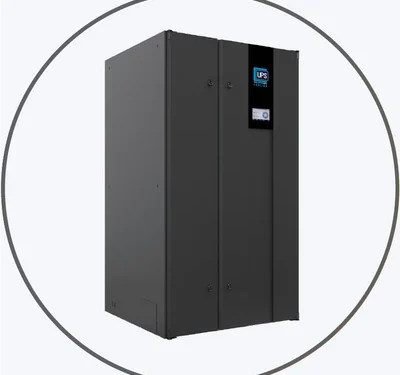When the primary power source varies or fails, a device known as a UPS enables systems to continue operating for a brief period. Power outages or blackouts can have significant repercussions for a house or company, including data loss. Despite contemporary remedies and alternatives created to backup power supply from harm caused by outages, power surges, electrical interference, and brownouts, power failures still pose a risk to delicate electrical equipment. It is always preferable to be aware of these threats and make early preparations to secure your systems. In addition to protecting computers and delicate devices from interference, power surges, and oscillation, a UPS offers a more sophisticated solution. Since prevention is always preferable to treatment, precautions should be taken to safeguard systems before the threat of interference with the primary power source results in harm. Before making a purchase, the consumer must consider the UPS they want to utilise carefully.
To make sure you choose the most incredible option for your needs, you must take into account several things:
Power generation and battery storage
The two distinct criteria should be different. Power output refers to the maximum load that a UPS can supply, while battery capacity refers to the amount of charge that the battery can hold. The UPS promptly cuts off the power if the overall load exceeds its power capacity, regardless of the amount of power remaining. Electrical consumption increases as more devices are connected. The ideal scenario is to get a UPS with more power output than your appliances require.
Cost
With prices ranging from 1500 to 250,000, the APC Home UPS is the least expensive UPS system. Power spikes can damage equipment if they are not protected by battery backup. A limited amount of time is given to the user to save his or her work, so that data is not lost. During power outages, the appliance’s battery becomes its primary power source. In UPS systems, a battery life indicator, such as a beeper or LCD screen, shows the remaining battery life. The Online UPS System is the priciest form; it can withstand high power loads and is typically employed by big businesses.
System Efficiency
Always seek items that may meet your organisation’s application criteria. A backup power supply/UPS that can manage step loads when diagnostic imaging devices are in use is necessary for a healthcare facility. The specification sheets that vendors give you often only include the system performance in operating modes. As a result, you should comprehensively investigate how the UPS you intend to purchase manages overloads and stages the loads. You may also ask friends and family in the medical profession for suggestions.
Reliability
Emergency power supplies are designed for UPS systems. Thus, they must be trustworthy. The likelihood of a product failing in this situation is a gauge of reliability. Even a tiny proportion might become a huge gamble when a patient is battling for their life. Therefore, anytime you buy UPS power supplies, remember to search for an impartial reliability evaluation from a third party to compare that product to others of a similar nature.
WARRANTY
Different businesses give various warranties for the batteries and UPS systems they sell. Standard warranties for electronics are typically 2-3 years, and batteries are usually two years. Some manufacturers are confident enough in their goods to provide an advanced replacement warranty. There are accessible extended warranties that are beneficial since they will cover new batteries.
Conclusion
You can ensure you have the best UPS for your needs by guaranteeing these aspects are considered. Additionally, you can be confident that your equipment will be secured to the highest degree possible with the appropriate UPS system for your home or place of business.













